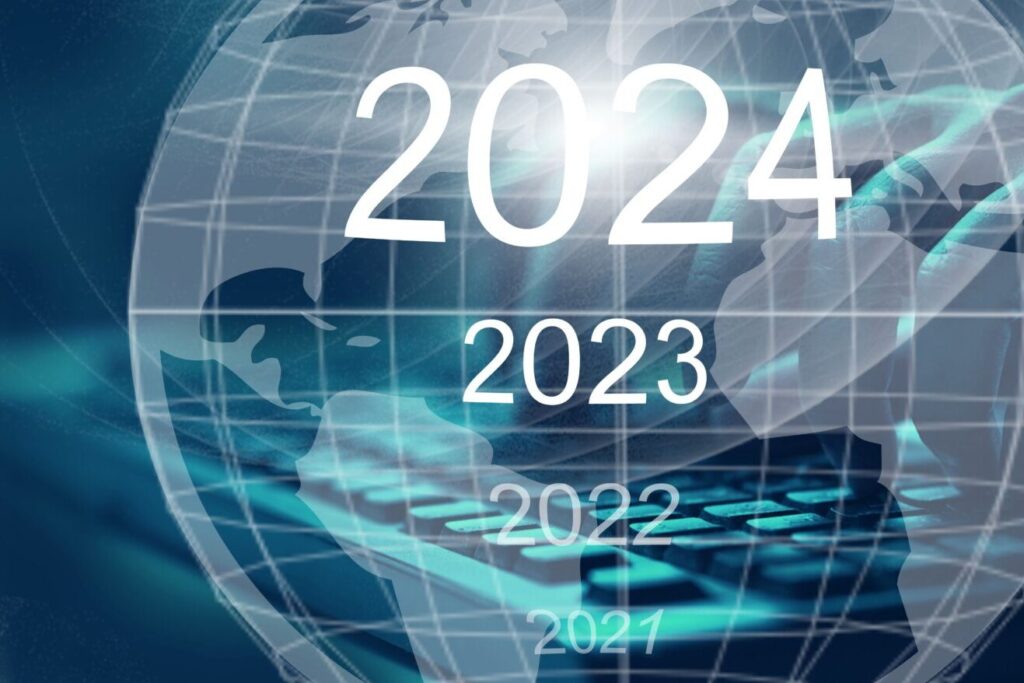
Gartner has unveiled its compilation of the ten foremost strategic technology trends that organisations should delve into for the year 2024. These findings were presented by analysts at the Gartner IT Symposium/Xpo event.
Bart Willemsen, VP Analyst at Gartner, emphasised the need for bold and strategic actions amidst technological disruptions and socioeconomic uncertainties. He stated, “IT leaders are in a unique position to strategically lay down a roadmap where technology investments help their business’s sustenance of success amidst these uncertainties and pressures.”
Chris Howard, Distinguished VP Analyst and Chief of Research at Gartner, highlighted the challenge of evaluating the impacts and benefits of these trends in a rapidly evolving technological landscape. He noted, “For example, generative and other types of AI offer new opportunities and drive several trends. But deriving business value from the durable use of AI requires a disciplined approach to widespread adoption along with attention to the risks.”
The top strategic technology trends for 2024 encompass:
1. Democratised Generative AI
Generative AI (GenAI) is becoming more accessible due to the convergence of massively pretrained models, cloud computing, and open source technologies. Gartner predicts that by 2026, over 80% of enterprises will have utilised GenAI APIs and models, up from less than 5% in early 2023. GenAI will democratise knowledge and skills in enterprises by making vast information sources accessible to business users.
2. Trust, Risk, and Security Management (TRiSM):
The democratisation of AI access necessitates robust AI TRiSM controls. These controls offer safeguards against the compounding negative effects that can arise from unchecked AI models. Gartner anticipates that organisations implementing AI TRiSM controls will enhance decision-making accuracy by eliminating up to 80% of faulty and illegitimate information by 2026.
3. AI-Augmented Development
AI-augmented development involves the use of AI technologies like GenAI and machine learning to assist software engineers in various development tasks. These tools improve developer productivity, enabling them to focus on strategic activities such as designing and creating business applications.
4. Intelligent Applications
Intelligent applications possess the capability to adapt autonomously and respond appropriately to user needs. These applications, incorporating AI-based services like machine learning, enhance user experiences by dynamically adjusting to user requirements.
5. Augmented-Connected Workforce
The augmented-connected workforce (ACWF) strategy aims to optimise the value derived from human workers by using intelligent applications and workforce analytics to support employee well-being, development, and business results. By 2027, 25% of CIOs will use ACWF initiatives to reduce time to competency by 50% for key roles.
6. Continuous Threat Exposure Management
CTEM offers a systematic approach to evaluate the accessibility, exposure, and exploitability of digital and physical assets continuously. Aligning CTEM with threat vectors or business projects identifies vulnerabilities and unpatchable threats. By 2026, organisations prioritising CTEM investments will see a two-thirds reduction in breaches.
7. Machine Customers
Machine customers, also known as ‘custobots,’ are nonhuman actors capable of autonomously negotiating and purchasing goods and services. The proliferation of machine customers is set to generate trillions of dollars in revenue by 2030, making it a significant economic force.
8. Sustainable Technology
Sustainable technology leverages digital solutions to support environmental, social, and governance (ESG) outcomes. Concerns over energy consumption and environmental impacts associated with technologies like AI, cryptocurrency, IoT, and cloud computing underscore the importance of IT efficiency and sustainability. By 2027, 25% of CIOs will have their personal compensation linked to their sustainable technology impact.
9. Platform Engineering
Platform engineering involves building and operating self-service internal development platforms to optimise productivity and accelerate the delivery of business value.
10. Industry Cloud Platforms
Gartner predicts that over 70% of organisations will utilise industry cloud platforms (ICPs) by 2027 to expedite business initiatives. ICPs offer industry-specific solutions by combining various cloud services into a comprehensive product offering tailored to specific needs.
This year’s top strategic technology trends highlight those trends that will drive significant disruption and opportunity for CIOs and other IT leaders within the next 36 months. Gartner clients can read more in the Gartner Special Report “Top Strategic Technology Trends for 2024.”


